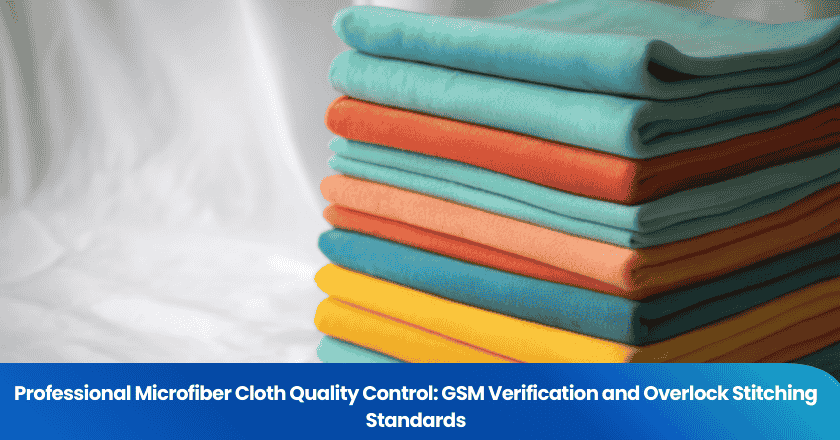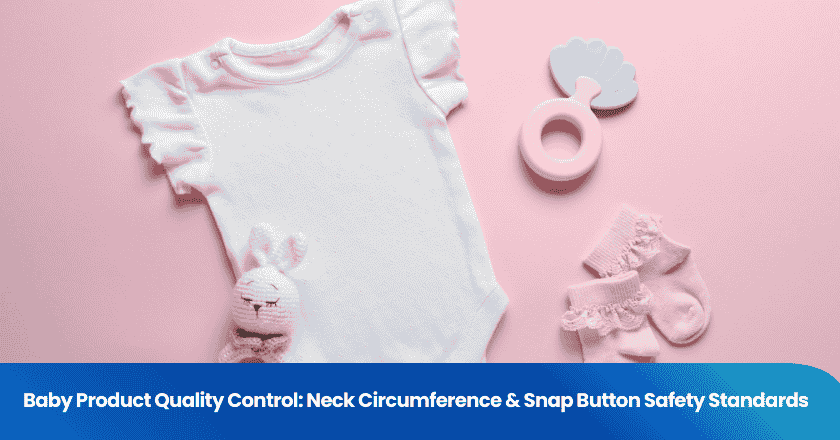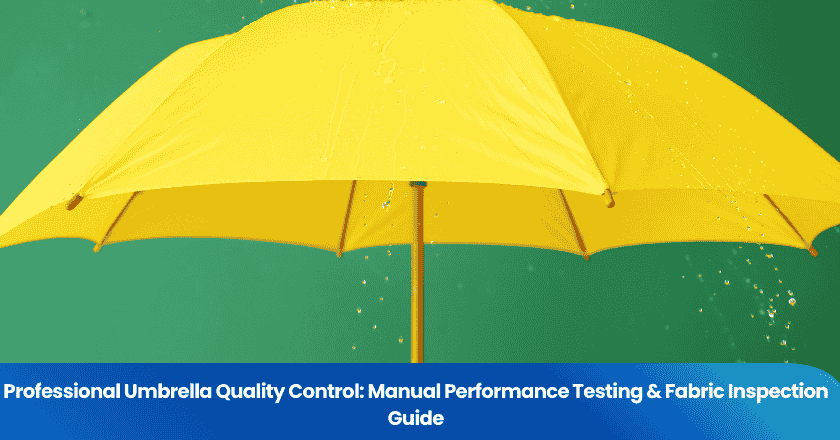
Introduction
In modern manufacturing, quality assurance is a crucial aspect that ensures products or services meet customer expectations and industry standards. Whether in the footwear and apparel industry or other fields, quality assurance service companies play a crucial role in improving product quality, reducing defects, and enhancing consumer trust. Choosing an excellent quality assurance service company can not only effectively enhance the compliance and competitiveness of products, but also bring significant cost benefits and brand reputation enhancement to the enterprise.
This article will delve into the key criteria that should be considered when selecting a quality assurance service company, aiding enterprises in making informed decisions among numerous service providers.
Industry experience and professionalism
In the fiercely competitive market environment of the footwear and apparel industry, the industry experience of quality assurance service companies undoubtedly becomes a key indicator to measure their professionalism and service efficiency. Those QA companies that have been deeply rooted in the industry for many years and accumulated rich practical experience not only have a more keen insight into market dynamics and consumer needs, but also deeply grasp the unique quality requirements and complex challenges in quality control of the footwear and apparel industry. With profound industry accumulation, they are able to accurately grasp customer needs, provide tailored and efficient quality improvement solutions, and help enterprises stand out in the fierce market competition.
When evaluating the professionalism of a QA service company in the footwear and apparel industry, the primary consideration is the depth and breadth of its operational history. By carefully examining the company's past service cases, especially whether it has successfully assisted enterprises of similar scale and type in solving quality control challenges, we can intuitively reflect its actual operational capabilities and the effectiveness of its problem-solving strategies. Experienced QA companies, leveraging their long-term accumulated practical experience, are often able to anticipate potential risks and identify and avoid them in advance at various key stages of the production process. By implementing a series of targeted and effective quality control measures, they ensure the continuous stability and optimization of product quality.
Furthermore, the proficiency of technical skills and a deep understanding of industry standards constitute another crucial dimension for assessing the professionalism of QA service companies. This necessitates that QA teams not only be well-versed in the production processes of footwear and apparel products and the performance characteristics of various materials, but also stay abreast of industry trends, be familiar with the latest international and domestic quality standards, as well as common quality defects and their solutions within the industry.
For footwear and apparel companies seeking QA services, choosing a QA service company with profound industry experience, excellent technical skills, and a deep understanding of industry standards is a wise move to ensure product quality, enhance brand image, and achieve sustainable development.
Follow international and local standards
In today's globalized business environment, quality assurance service companies must strictly adhere to a range of international and local regulations, standards, and norms to ensure that the products of the enterprises they serve can smoothly enter and comply with the compliance requirements of different markets. This requirement is not only related to the market competitiveness of products, but also an important manifestation of the credibility and international image of enterprises.
Firstly, QA service companies should hold and continuously maintain a series of authoritative industry certifications and qualifications, which serve as important benchmarks for measuring their professional capabilities and service quality. For instance, ISO 9001 quality management system certification demonstrates that the company has achieved internationally recognized high standards in quality management, enabling it to provide stable and reliable quality control services to its clients. Meanwhile, ISO 14001 environmental management system certification reflects the company's commitment and practice in environmental protection, which is also indispensable for enterprises that prioritize sustainable development. These certifications not only recognize the professional capabilities of QA service companies but also serve as strong credentials for them to win client trust and expand into the international market.
For multinational companies, products need to cross the boundaries of different regions, cultures, and legal systems. Therefore, QA service companies must possess strong cross-market compliance capabilities. This means they need to have a deep understanding of and proficiency in the market access rules, product quality standards, environmental regulations, and consumer protection laws of various countries or regions, to ensure that products meet relevant requirements globally. Additionally, as the international trade environment continues to change, QA service companies also need to maintain a high level of sensitivity and flexibility, be able to quickly adapt to newly emerging regulatory adjustments and standard requirements, and adjust quality control strategies in a timely manner to ensure the compliance and competitiveness of clients' products in the global market.
Scope of quality assurance services provided
When selecting a quality assurance service company, enterprises need to carefully consider whether its service scope is broad and in-depth, and whether it can comprehensively cover all key quality control links within the product lifecycle. This is an important prerequisite for ensuring stable product quality and enhancing market competitiveness.
Inspection, testing, and auditing capabilities
Firstly, a QA service company should possess robust inspection, testing, and auditing capabilities, which are direct manifestations of its professionalism. From incoming inspection of raw materials, monitoring of the production process, to comprehensive testing before the finished products are shipped out, and regular audits of the quality management system, every step needs to be strictly controlled to ensure that the products always meet the established quality standards and customer needs. The company should have advanced testing equipment and technical means, as well as an experienced professional team, capable of accurately identifying and addressing various quality issues, effectively preventing the occurrence of quality risks.
Service customization
However, the quality control needs vary widely across different industries and enterprises. Therefore, a high-quality QA company must possess a strong ability to customize services, tailoring quality control solutions based on customers' specific needs and business scenarios. This includes, but is not limited to, specialized inspection plans for specific products, customized testing processes based on industry standards, and specialized improvement plans designed to address specific quality issues. By deeply understanding customers' business models, product characteristics, and market positioning, QA companies can more accurately grasp the key points of quality control, provide more targeted services, help customers effectively solve quality problems, and enhance product competitiveness.
When selecting a QA service company, enterprises should focus on whether its service scope comprehensively covers the entire process of quality control, and whether it has the ability to provide customized services according to customer needs. These two points are important criteria for measuring the professional level of a QA company, and they are also key factors in ensuring stable product quality and achieving sustainable development for enterprises.
Technical capability and data management
With the advancement of technology, the field of quality control is undergoing unprecedented transformation. If enterprises wish to maintain their competitiveness amidst this transformation, they must opt for quality assurance service companies that can provide innovative technical support. This serves not only as a necessary approach to enhance product quality but also as a pivotal step in driving enterprises' digital transformation and realizing intelligent manufacturing.
Real-time reporting and data transparency
In the era of information explosion, the value of data is self-evident. A high-quality QA company should establish a comprehensive data reporting system, provide real-time data reports, and ensure that the content of the reports is clear and transparent, facilitating customers' timely understanding of product quality status and key data during the production process. Through visual data display, customers can intuitively see the effectiveness of quality control, providing strong support for decision-making. At the same time, this transparency also enhances trust and cooperation between customers and QA companies, jointly promoting the continuous improvement of product quality.
Protect sensitive information
During the data collection and testing process, it is crucial to protect sensitive information of enterprises. QA service companies should strictly comply with relevant laws and regulations, adopt stringent data security measures, and ensure that customer data or business secrets are not leaked. This includes but is not limited to technical means such as data encryption, access control, audit logs, as well as strict personnel training and management systems. These measures aim to eliminate the risk of data leakage at the source and safeguard the legitimate rights and interests of customers.
Key Performance Indicator (KPI)
To evaluate service quality more scientifically, QA service companies should establish clear performance indicators (KPIs) and use these indicators to quantify service effectiveness. These KPIs can encompass multiple dimensions such as detection accuracy, defect rate, customer satisfaction, response time, etc., comprehensively reflecting the overall level of QA services. Through regular evaluation and feedback, QA companies can adjust service strategies in a timely manner, optimize quality control processes, ensure that customer needs are fully met, and achieve continuous quality improvement and enhancement.
Technical capability and data management have emerged as the core competitiveness of modern QA services. Enterprises should opt for QA service companies that can keep pace with technological trends, offer innovative technical support, and prioritize data security and transparency. Together, they can drive continuous improvement in product quality and embrace the advent of the intelligent manufacturing era.
Grow your business with TradeAider Service
Click the button below to directly enter the TradeAider Service System. The simple steps from booking and payment to receiving reports are easy to operate.





